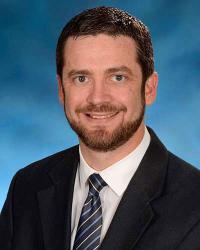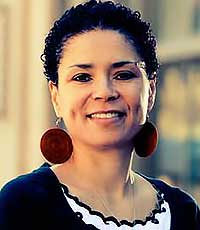The Program in Health Equity and Population Health Seed Grant Program was established in 2017 and awarded its first of several planned awards in 2021 (see past awardees). The 2024 award marks the third round of funding under this initiative. Congratulations to this year's seed funding awardees!
2024 Award Announcements
Understanding Needs for Integrated HIV Prevention and Treatment to Enhance Health Outcomes Among People who Inject Drugs

Marie-Claude Lavoie, PhD, MSc
Ciheb Director of Strategic Information and Evaluation,
Institute of Human Virology
Assistant Professor,
Department of Epidemiology and Public Health

Cassidy Claassen, MD, MPH
Ciheb Global Health Fellowship Director,
Institute of Human Virology
Associate Professor,
Department of Medicine

Linah Mwango
Ciheb Deputy Chief (Zambia)
International Program Administrator, Operations
Abstract
Globally, people who inject drugs (PWID) are 35 times more likely to acquire HIV than people who do not inject drugs. In 2021, PWID accounted for 10% of all new HIV infections PWID are disproportionately impacted by other infectious diseases, psychiatric comorbidities, mental health disorders, and premature death. First-ever data on PWID in Zambia from the 2022 Biobehavioral Survey revealed an HIV prevalence of 13.6% and as high as 40% among women who inject drugs. Epidemiological data on PWID remain scarce in Sub-Saharan Africa, including Zambia. The Ministry of Health in Zambia is transitioning to a harm reduction strategy a is supporting the introduction of Medications for Opioid Use Disorder (MOUD) for the first time in Zambia. The University of Maryland Baltimore (UMB) and Ciheb-Zambia are the Ministry of Health partners implementing this initiative as part of CDC-funded project. The proposed study includes two complementary aims: (1) assess anticipated barriers and enablers towards the introduction of MOUD; and (2) assess MOUD initiation and continuation and HIV care continuum outcomes among persons seeking services at the MOUD clinic based at the University of Teaching Hospital in Lusaka, Zambia.
Thai Kickboxing as an Adjunct to Talk Therapy among Afghan Refugees: A Feasibility Study

Lynn Michalopoulos, PhD
Director of Global Initiatives,
Associate Professor, UM School of Social Work
Abstract
Individuals seeking refuge often experience extensive interpersonal violence, increasing the risk for mental health problems like post-traumatic stress, anxiety and depression. Although there are a number of evidence-based talk therapies to address trauma, there has been an increase in awareness of the benefit of alternative somatic therapies, which may address mental health problems beyond traditional talk therapy. The proposed study is a collaboration with Global Refuge, a non-profit community-based organization. We propose to build upon a current pilot study where we are examining the martial art of Thai Kickboxing as a somatic adjunct to talk therapy among Afghan refugees. This proposed research aims to expand the pilot study. Specifically, we propose to examine the feasibility, acceptability, and preliminary impact on mental health after engaging in a 12-week Thai Kickboxing class. In addition, we will explore how Thai kickboxing class might engender embodied belonging among participants. This contributes to emergent research recognizing how mental distress resulting from migration-related trauma is embodied, that is, mediated, through the body. This proposed study is an interdisciplinary project including faculty from the School of Medicine, Department of Kinesiology at College Park and the School of Social Work. Findings from this study will inform the development of a larger efficacy trial.
Past Awardees
2023
In May 2023, The Program in Health Equity and Population Health awarded $25,000 to Dr. Francesca Okolie and Dr. Jioni Lewis' proposal Achieving Health Equity, Empowerment and Improved Maternal Outcomes Through Collaborative Doula Care. Francesca Okolie, DO, MPH, is an Assistant Professor of Pediatrics at the University of Maryland School of Medicine and a Neonatologist at the University of Maryland Medical Center (UMMC). She is also the Director of the NICU Multidisciplinary Patient Safety Review Committee at UMMC. Jioni Lewis, Ph.D. is an Associate Professor and the Co-director of Training in the Counseling Psychology Doctoral Program in the College of Education at the University of Maryland, College Park.
Stay tuned for more information about upcoming all-member meetings and opportunities to hear about HEPH seed-funded research.
2022
In Fall 2022, the Program in Health Equity and Population Health began incorporating Lightning Talks into bi-monthly all-member meetings. In a series of Lightning Talks presented by Health Equity Researchers, faculty delivered a 5-minute talk about a research idea with the objectives of engaging transdisciplinary partners and receiving brief and stimulating feedback for the project.
The presentations were followed by Q&A and advice (e.g., ideas and suggestions for collaborators) from the audience to assist the presenter in moving forward. Faculty who presented lightning talks were encouraged to incorporate the feedback they received and to apply for seed funding for their projects in 2023. Consideration was given to those researchers who presented lightning talks, however, it was not a requirement for the application.
If you are interested in presenting a Lightning Talk in Spring 2025, please contact Program Director, Erin Walton, at erin.walton@som.umaryland.edu
2021
In 2021, the Program in Health Equity and Population Health gave a $25,000 award to a proposal titled COVID-19 related disruptions in the diagnosis of new cancers: disparities in care utilization and patient outcomes (PIs: Dr. Brajesh Lal, Surgery, and Dr. Brian Englum, Surgery).
Their project was selected, in part, because of their bidirectional partnership with their Community Advisor, Ms. Nancy McCormick. Ms. McCormick is a long-time member of the Baltimore community and part of the PATIENTS program PCORI advisory board. She is engaged in cancer care as a survivor and is contributing a community perspective on study design, data interpretation, and future directions with community focus groups, advisory boards, surveys, and recommendations.
She is working with Drs. Lal and Englum, and the rest of the research team to achieve the project aims (1) Identify patient and community factors that impact the disruption in new cancer diagnoses in the COVID era; and (2) Quantify the consequences of the disruption in new cancer diagnoses in the COVID era, and how patient and community factors impact these consequences.
In July, Drs. Lal and Englum submitted a 6-month report on their findings and presented them to the program at the all-member meeting.
